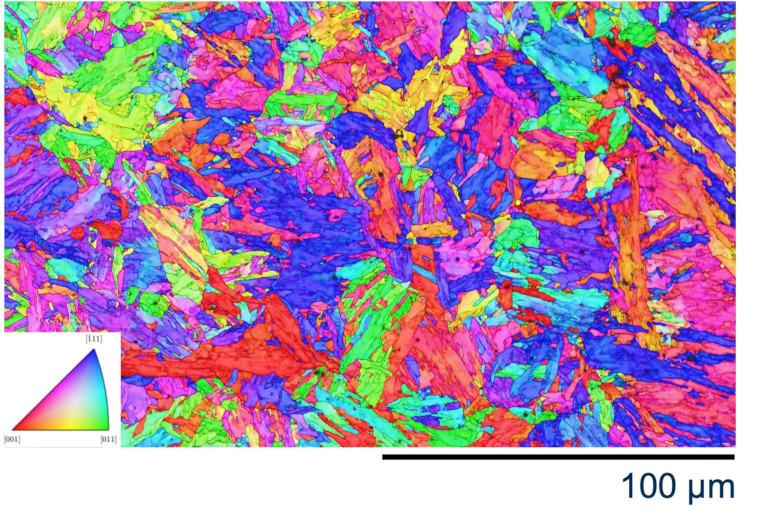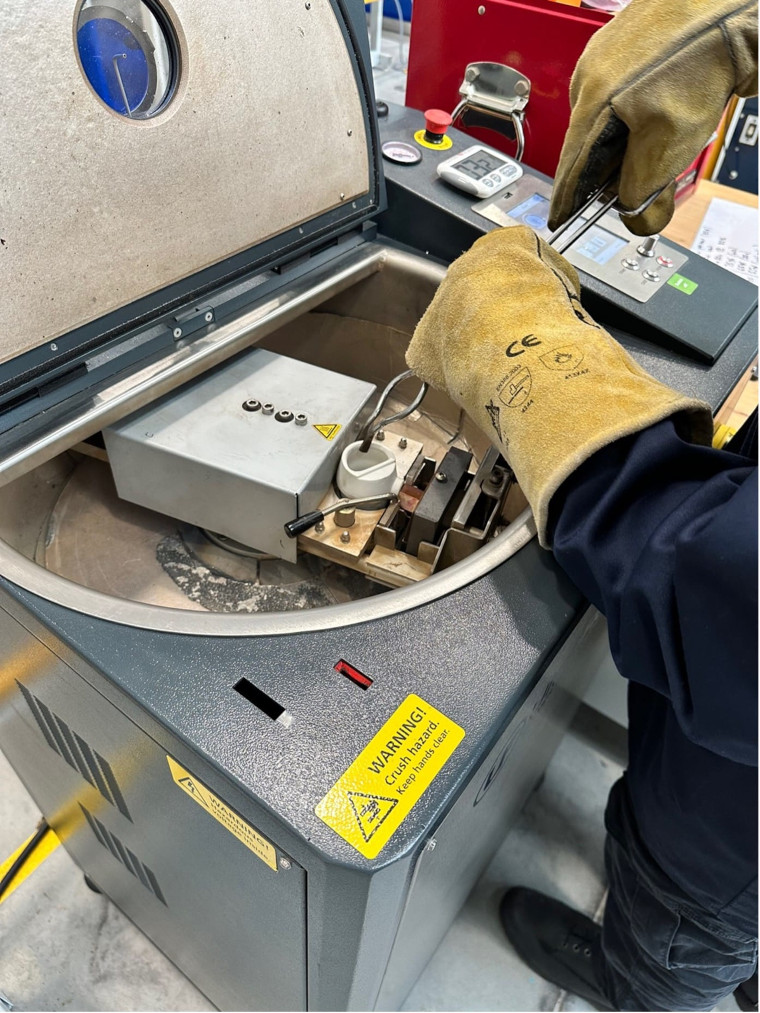NEURONE: NEUtron iRradiatiOn of advaNced stEels
Developing and delivering an industrially scalable fusion-grade advanced steel.
NEURONE aims to provide an industrially scalable fusion-grade advanced steel capable of operating at 650°C in a fusion breeder-blanket environment. NEURONE officially started in 2024 within the Fusion Futures funded LIBRTI programme and will continue to run until early 2028.
Achievements
Major achievements of NEURONE include:
- successfully produced the first multi-tonne UK reduced-activation ferritic martensitic steel, demonstrating the UK’s capability to scale up production for advanced variants in the future
- successful production of over 50 alloy variants, advancing the search for an optimal fusion-ready steel
- establishing compositional space and process methodology using thermomechanical treatments (TMTs)
- establishing a comprehensive testing framework, including irradiation campaigns in material test reactors worldwide
- investigating irradiation stability of VN precipitates – Read the publication.
- developing atomistic modelling capability to predict stability of MX precipitates in steel whilst under irradiation
- supporting 6 PDRAs, 9 student placements and 10 PhD projects
The science
Fusion power plants such as the Spherical Tokamak for Energy Production (STEP) will require coolant operating at temperatures up to 650°C. This is to increase the efficiency of the power plant, enabling additional electricity generation.
The steels being developed within the NEURONE programme, rely on nano-scale particles to strengthen the material and improve resilience to radiation damage. They offer an increase to the maximum operating temperature of fusion power plant components.
Steels are produced using carefully selected alloying elements, reducing residual radioactivity and forming sufficient strengthening phases to enable acceptable performance in a fusion energy environment. This is coupled with thermomechanical treatments developed to exploit these strengthening mechanisms and evolve the required microstructures.
We aim to make what we produce in the lab achievable at scale in industry. This is because ultimately, these steels will be used in future fusion power plants, and will rely on industrial upscaling and processing.


Partners
NEURONE is working with over 70 collaborators across 12 organisations to produce scalable, fusion-grade commercial steel by 2028.
Government
Partner organisations in government include:
- UKAEA – programme management, establishing technical direction and operational requirements
- Australian Nuclear Science and Technology Organisation (ANSTO) – neutron irradiation of material using the Open Pool Australian Lightwater (OPAL) reactor
Academia
Partner organisations in academia include:
- Swansea University – alloy development and screening within the MACH1 laboratory, mechanical testing and analysis within the Institute for Structural Materials (ISM)
- University of Sheffield – alloy development and screening
- University of Birmingham – alloy development and screening, proton irradiation and synergistic effects
- University of Manchester – material characterisation – primarily using transmission electron microscopy (TEM)
- University of Oxford – material characterisation – primarily using atom probe microscopy (APT), hot nanoindentation of materials
- University of Bristol – assessing high thermal flux exposure of fusion-grade steels
- Imperial College London – atomistic modelling of precipitate stability and defect interaction within fusion-grade steels, mechanical testing utilising Materials Testing 2.0 methodologies and data-rich techniques
- University of Strathclyde Glasgow – assessment of various manufacturing techniques towards a mock-up component
Industry
Partner organisations in industry include:
- Materials Processing Institute – upscaling to kilogram and tonnage sizes, subsequent alloy thermomechanical treatments (TMTs)
- Sheffield Forgemasters International Limited – ingot solidification modelling and upscaling to multi-tonne scale
LIBRTI: The Lithium Breeding Tritium Innovation Programme
We are creating a world leading UK capability for demonstrating the feasibility of power plant relevant fusion fuel technologies.